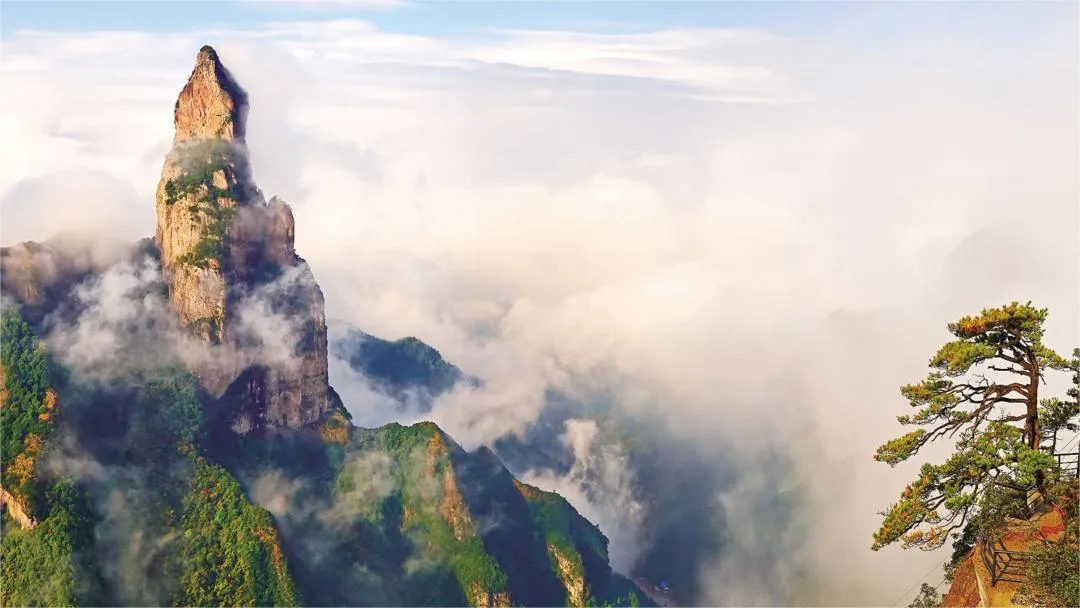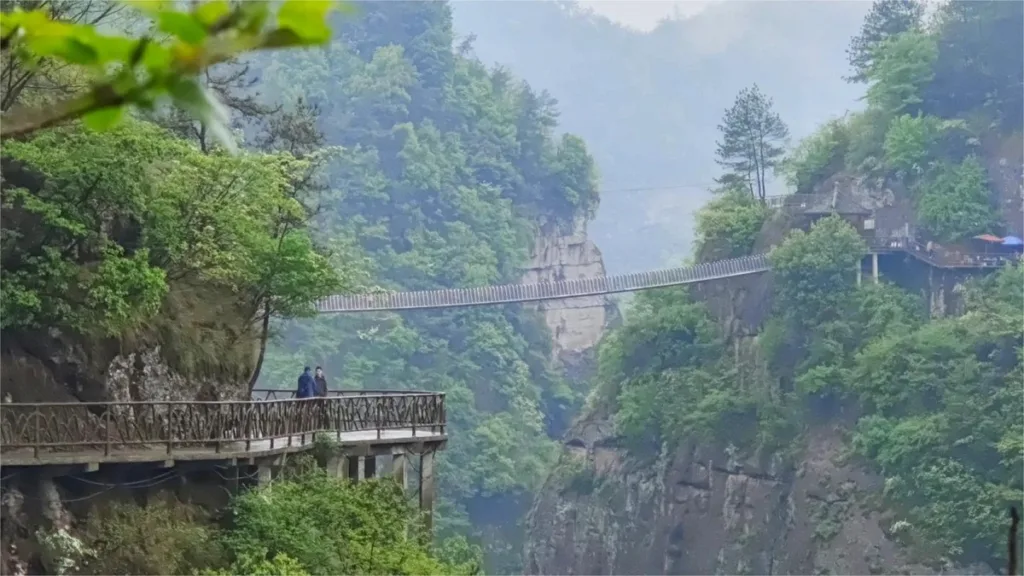Tianmu Mountain (天姥山), located in Xinchang County, Zhejiang Province, China, belongs to the Tian Tai mountain range branch, with its main peak known as Boyun Jian, standing at an altitude of 818 meters. The name “Tianmu” is derived from its shape, resembling a woman, and ancient people associated it with celestial beings, hence it is called “Tianmu,” meaning “Queen Mother.” Tianmu Mountain is a cultural mountain revered by ancient Chinese literati, with many poets and scholars visiting and leaving behind precious cultural heritage, such as Li Bai‘s “Dreaming of Tianmu and Bidding Farewell” and Du Fu‘s “Travel Impressions.” Additionally, Tianmu Mountain is one of the important birthplaces of Taoism, being the 16th and 60th blessed land of Taoism. The relics of Taoist temples and stone tablets on the mountain bear witness to the profound Taoist culture accumulated here.
Table of Contents
- Basic Information
- Location and Transportation
- Highlights of Tianmu Mountain
- Vlog about Tianmu Mountain
- Other Attractions in Xinchang County
Basic Information
| Estimated Length of Tour | 3 hours |
| Ticket Price | Free |
| Opening Hours | 8.30 – 16.30; Last admission: 15.00 |
Location and Transportation
Tianmu Mountain is located in Ru’ao Town, Xinchang County, Shaoxing, Zhejiang Province. To reach Tianmu Mountain, you can take the high-speed train to Shengzhou Xinchang Station, then transfer to a bus heading to Zhulu Tourist Center (朱路游客中心).
Highlights of Tianmu Mountain
Sima Hui Bridge

Tianmu Mountain boasts numerous scenic spots and historical sites. Sima Hui Bridge (Sima Regretting Bridge), located in Banzhu Village, is a single-arch stone bridge with a slightly arched surface, measuring 32 meters in length and 5.8 meters in width, without railings or parapets. According to legend, Sima Ziwei, a famous Taoist priest from the Tang Dynasty, once lived in seclusion on Tiantai Mountain. He was summoned by Empress Wu Zetian, Emperor Ruizong, and Emperor Xuanzong four times and finally left the mountain for the last time, crossing the bridge while leading his horse. Looking back, he saw the misty mountains and flowing streams below, filled with regret.
Xie Gong Ancient Road

During the Eastern Jin Dynasty, Xie Lingyun led villagers to Tianmu Mountain to cut wood and build roads. Passing through Huishu Ridge, they created a ancient post road spanning over 35 kilometers, known as the “Xie Gong Ancient Road.” Huishu Ridge features attractions such as Banzhu Village and Sima Chengzhen Bridge, serving as a must-visit route for Tang Dynasty poets traveling to Taizhou and Yuezhou. The construction of the Huisuoling road involved laying stone slabs and gravel, which have remained intact for thousands of years.
Tianmu Temple

Tianmu Temple, located in Xinchang County, was initially built in the first year of the Guangshun era of the Later Zhou Dynasty (951 AD) by the Zen Master Taiji. Originally named Tianmu Yuan, it was renamed Guangfu Yuan during the Song Dynasty and finally changed to Tianmu Temple in the 15th year of the Hongwu reign of the Ming Dynasty (1382). The Lotus Peak above Tianmu Temple consists of several overlapping peaks resembling blooming lotus flowers. In front of the temple flows a babbling brook with a bridge called “Dreaming Bridge.”




